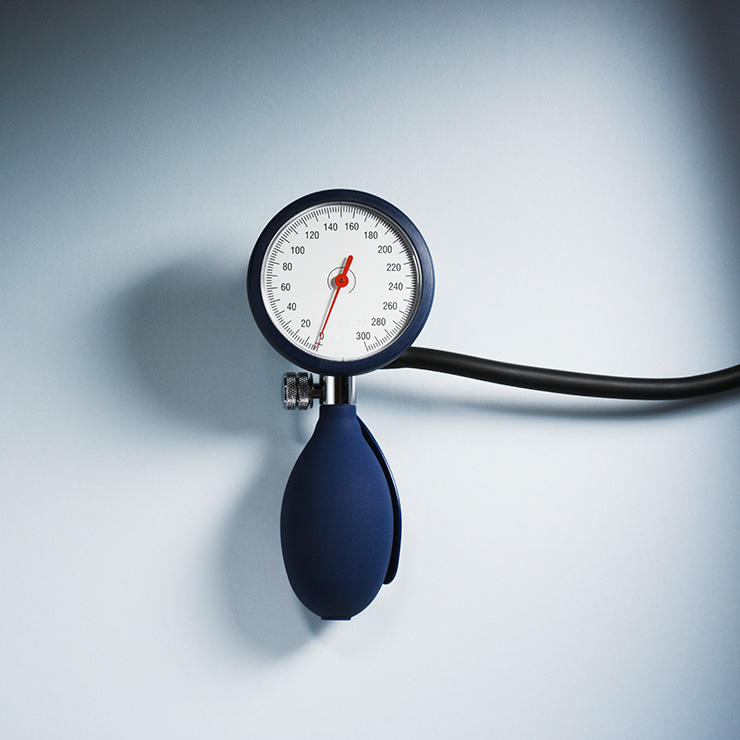wikiHow to Lose 10 Pounds in a Month
For long-term weight loss, it is not recommended to lose more than 1-2 pounds per week. But if you're trying to jump-start your weight loss or want to get your body svelte for an upcoming party or vacation, it is possible to lose 10 pounds in one month. Read this article to learn how!
Steps
Part 1 What to Do
-
1
Reduce your caloric intake. Losing weight is a simple matter of cutting down on calories, eating healthier foods, and exercising more. In order to lose 2 pounds every week, you will need to cut your intake by about 1,000 calories.[1] Do this by eating fewer calories and by burning more calories through exercise.
- If you eat between 1,000 and 1,200 calories a day and do one hour of aerobic activity, you could lose 3-5 pounds in just one week![2]
- Regardless of your weight, don't attempt to eat under 1,200 calories a day for more than one week.
- Start reading food labels and using online calorie calculators to determine the calorie content of everything you eat. This includes the calories in salad dressings, cooking sauces, beverages, and olive oil.
-
2
Eat clean. Losing weight is not only about eating less, but about eating right. Nutrient-rich foods will help you lose weight and keep you feeling full for longer. Your diet should consist primarily of green vegetables, lean proteins, and some fruit.
- Make salads or stir-fry with broccoli, lettuce, green beans, asparagus, brussels sprouts, cauliflower, celery, kale, and/or carrots.
- Eat lean proteins like chicken, fish, tofu, turkey, eggs, and tempeh. Try to eat protein at every meal.
- Eliminate sugars, salty foods, and most carbohydrates from your diet. While these foods should normally be enjoyed in moderation, you should cut them out if you are trying to lose weight quickly.
-
3
Document everything you eat by writing it down. People who calculate what they eat tend to lose more weight (and keep it off) than those who don't.[3] You should also write down every exercise you do and calculate the amount of calories burned. Keep track of your intake throughout the day, and add/subtract calories as you go.
- Try using an online calorie calculator/food diary like My Fitness Pal or Calorie King.
-
4
Cook your meals at home when possible. Eating healthy is a lot easier when you are in control of the portion sizes and ingredients that go into your meals. Bring a bagged lunch to work or school, and bring snacks with you to hold you over until you get home. Not only will this save your waistline, it will save you some green too!
- If you do eat out, your best bet is to order a green salad with protein (chicken or fish) and ask for the dressing on the side.
- Skip out on pizza, pasta, and fried foods, and opt for grilled or steamed options when possible.
- Some chain restaurants have the calorie content of each dish printed out on the menu, making it easier to make smart choices.
-
5
Don't drink your calories. Did you know that some Starbucks "coffee" beverages contain a whopping 700 calories? Many people underestimate the amount of calories contained in the beverages they drink. During this month, you should only drink water, unsweetened tea, black coffee, and sparkling water.
- Add non-fat milk, soy milk, almond milk, or honey to your beverages if needed.
- Skip out on alcohol. If you do decide to drink, stick to one glass of red or white wine.
-
6
Make some substitutions. Dieting doesn't mean eating flavorless food all the time, but you will need to make some substitutions to cut down on unnecessary calories. Consider the following ideas:
- Substitute Greek yogurt for sour cream and mayonnaise.
- Eat shirataki noodles rather than regular pasta/spaghetti.
- Switch to whole grain bread, pasta, and rice.
- Substitute dark chocolate for cookies, cakes, and other treats.
- Substitute one piece of fruit like an apple or banana over your regular mid-afternoon snack.
- Switch to cooking spray over olive oil, vegetable oil, or butter.
-
7
Exercise every day. To lose weight rapidly, you should get between 1-2 hours of moderate to intense aerobic activity every single day. The following are examples of exercises that burn the most calories:
- Running. Calories burned per hour: 861-1,286 for an 8 minute mile.[4]
- Swimming. Calories burned per hour: 423-632.[5]
- Jumping rope. Calories burned per hour: 861-1,286.[6]
- Stair treadmill. Calories burned per hour: 657-981.[7]
Part 2 Tracking Progress and Staying Motivated
-
1
Weigh yourself once a week. It's important to weigh yourself at the same time of day, as everybody's weight fluctuates throughout the day. Always weigh yourself in the morning before you have eaten anything, and be sure to remove your shoes.
- Don't weigh yourself every day; it will drive you crazy and cause more harm than good.
- 2 Find a weight loss buddy. Having somebody to diet and exercise with can help you stay motivated and make the weight-loss process more fun. The two of you can exercise together, share tips, and even place bets on who can lose the weight fastest.
-
3
Use an inspirational piece of clothing. Whether it is a pair of jeans that are too snug or a bikini that you plan on wearing next summer, hang that garment up in your home in a place where you will see it every day. This will help keep you motivated and remind you why you started in the first place!
- You can also use these clothes to help track your progress. Try them on every week or two and see how they fit. Scales can be deceiving, but clothing never lie!
Part 3 Keep Going After 10 Pounds
-
1
Let your weight stabilize. If you have just lost 10 pounds in one month, then it's likely that some of the weight you lost was just water weight. Continue to maintain the weight you have lost for at least two weeks before attempting to shed any more pounds.
- Maintain the weight by eating around 1,200-1,400 calories a day and continuing to exercise regularly.
- During this time, you'll find that your body will continue to change even though the numbers on the scale stay the same. That's because your body is adjusting for the fluid loss and gaining some muscle from exercise.
-
2
Avoid binges. Losing weight can oftentimes trigger overeating. The best way to prevent binges is to enjoy the foods you love in moderation, and to never starve yourself. Remember that no food is off limits, as long as you don't overdo it.
- Many people binge at night if they have been hungry all day. Combat this by eating either a large breakfast or a large lunch that will hold you over until nighttime. Then eat a light dinner.
-
3
Mix up your diet and workout plans. The only way to overcome a weight-loss plateau is to surprise your body by switching up your routine.
- Do resistance training. Many dieters focus all of their attention on calorie-busting aerobic workouts, forgetting that building muscle helps the body burn fat. Plus, losing weight means losing some muscle, which can slow down the metabolism.[8] If you find yourself at a weight-loss plateau, it's time to get lifting!
- If you have been doing nothing but running, then switch to swimming or cycling. If you have been eating six small meals a day, then switch to three medium-sized meals, and so on.
-
Tips For Getting More From Your Acupuncture
TIP! If acupuncture is something you’d like to try to g
-
Superb Weight Loss Tips Just For You!
Most people want to have a fast weight loss so that they will look go
-
Lose The Pounds And Not The Fun – Easy Weight Loss Advice
TIP! Taste is something that you can maintain, even when you
-
Losing Weight Does Not Have To Be Hard
TIP! Fad diets may sound like a fabulous way to jump-start yo
-
Effective Losing Weight Tips For Teenagers
Most teenagers value their social network above most things. This is
-
If Your Diet Drug Works...Its Bad For You
If you wanted to lose weight last year, you might have been tempted to
- DON'T MISS
- Excellent Ways To Make Weight Loss Work For You
- What You Need To Know About Losing Weight For Good
- One Womans Amazing 155-Pound Weight Loss Story
- Weight Loss Tip #122 – Try acupuncture for losing weight faster!
- Tips On Teaching Your Kids How To Fish
- How to Diet
- Simple Trick To Force Your Body To Burn Fat Fast
- 10 Weight Loss Foods
- How Can I Lose Weight - Importance of Water
- Home Remedies for Weight Loss Diet Plan




